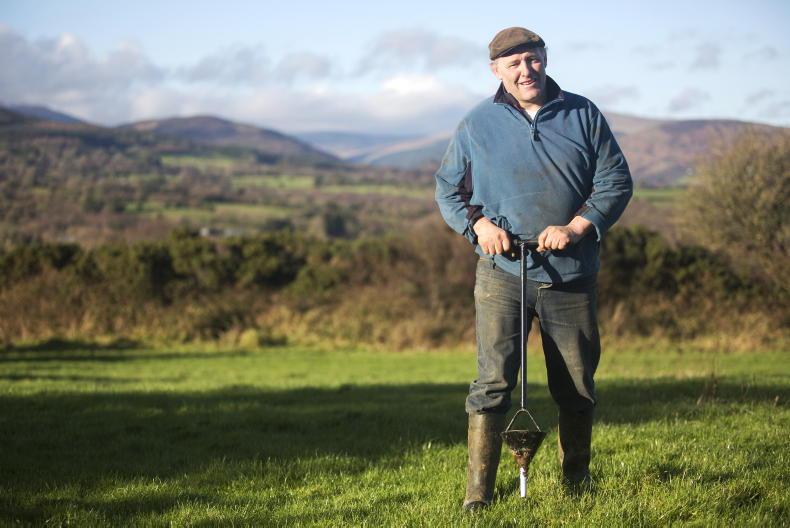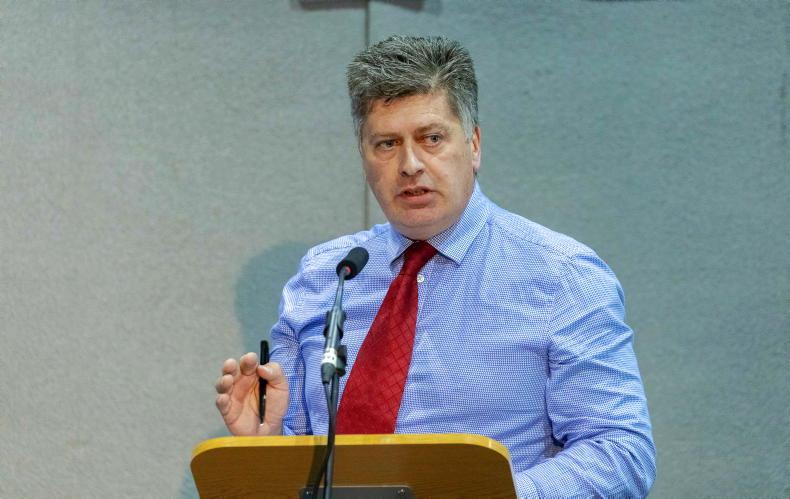Glanbia’s announcement that it intends to manage growth in peak milk production is effectively the first step towards a milk quota for suppliers, IFA president Tim Cullinan has said.
Glanbia recently announced that it will set new supply limits for milk delivered during the peak months of April, May and June in response to limited milk processing capacity.
A milk price penalty of 30% of the prevailing milk price will be applied to milk delivered above the allowed limit for each farmer.
Cullinan said: “Since 2015, farmers have optimised their milk production through efficient use of grass-based production systems. Farmers are now being asked to produce more milk at times of the year when production costs are higher.
“The vindictive court action by An Taisce has impacted Glanbia’s plans, but the company has a responsibility to its suppliers. It will be farmers who are developing, and potential future entrants to dairying, who will carry the can.”
Two tier policy
The new rules for limiting peak milk will come into effect for three years – 2022, 2023 and 2024.
“Dairy expansion has given a huge boost to the rural economy, allowing farm families to have a sustainable future. Now farmers again find their business ambitions restricted,” Cullinan continued.
“Since 2015, dairy farmers have invested over €2bn and processors have invested a similar amount of farmers’ money in new facilities.”
Compensation
IFA national dairy chair and Glanbia supplier Stephen Arthur has highlighted significant financial commitments made by farmers.
“If farmers are being asked to shift their milk supply pattern away for the most efficient time of the year, then they must be properly compensated,” Arthur said.
“There are also fundamental questions about how this decision impacts on the milk supply agreement between farmers and Glanbia. We are very concerned about what appears to be a two-tier milk pricing policy and the precedent this sets.”
IFA representatives met with Glanbia management on Monday evening (15 March).
Calls for action
Following a meeting with Glanbia Ireland, president of the ICMSA Pat McCormack said the proposed restriction at peak milk will undermine efforts in delivering greater sustainability.
“It is now essential that our Government acknowledge the importance of milk production to rural communities and the wider national economy with a policy that allows dairy to continue to develop sustainably without being tied up in legal disputes.
“The attacks on dairy have gone on for far too long and it is time that our Minister for Agriculture and Government robustly defended the sector and allowed for its future development.”
The ICMSA said the Glanbia peak management proposal will create serious difficulties for many farmers, calling for each individual supplier to be provided with details of the implications as soon as possible.
“This must only be a temporary measure and the necessary capacity should be put in place as soon as possible,” McCormack continued.
“Future Government policy will be critical. They either decide to allow family farms to expand sustainably or they shut us down with the catastrophic implications for our rural and national economies.”









SHARING OPTIONS